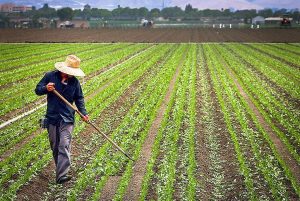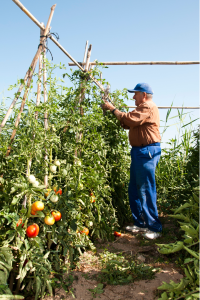What is Agricultural Research Council
In the vast fields of agriculture, where the plows of innovation turn the soil of tradition, organizations like the Agricultural Research Council (ARC) emerge as beacons of progress. As the world grapples with the complex challenges of food security, environmental sustainability, and technological evolution, the ARC stands as a pillar of agricultural research, striving to illuminate the path toward a more productive, resilient, and sustainable agricultural future.
The Agricultural Research Council, often abbreviated as ARC, is a premier institution committed to advancing agricultural science and technology to address the multifaceted challenges that encompass modern agriculture. With the ever-increasing global population and changing climatic patterns, the ARC plays a pivotal role in reshaping the landscape of agriculture by harnessing research, innovation, and collaboration.
The Birth of Agricultural Research Council (ARC)
The roots of the ARC can be traced back to the recognition of the need for dedicated research efforts to tackle the growing complexities of agriculture. Emerging in response to the demand for evidence-based solutions, the ARC was established to bridge the gap between theoretical knowledge and practical application. Its inception marked a significant step towards channeling intellectual resources towards the betterment of farming communities.
ARC’s Mission and Objectives
At its core, the mission of the Agricultural Research Council is to facilitate the creation, dissemination, and application of agricultural knowledge that drives productivity, sustainability, and economic growth. The ARC envisions a future where agriculture is not just a means of sustenance but a force for positive transformation on a global scale. Its objectives include enhancing crop yields, improving livestock productivity, fostering resource-efficient practices, and promoting the well-being of rural populations.
Agricultural Research Council
Crop Improvement
One of the cornerstones of ARC’s research is crop improvement. By employing modern breeding techniques, genetic engineering, and precision agriculture, the ARC endeavors to develop high-yielding, disease-resistant, and climate-resilient crop varieties that can thrive in diverse agro-climatic conditions.
Livestock Management
Livestock play a crucial role in global food production and livelihoods. The ARC’s research in livestock management encompasses genetics, nutrition, disease control, and sustainable animal husbandry practices. This holistic approach aims to optimize livestock production while minimizing its environmental footprint.
Sustainable Agriculture
Sustainability is the keystone of modern agriculture. ARC’s commitment to sustainability involves promoting agroecological practices that minimize soil degradation, conserve water resources, and reduce the reliance on synthetic inputs. By fostering biodiversity and natural ecosystem services, the ARC contributes to long-term agricultural viability.
Agroecology and Biodiversity
ARC recognizes the intrinsic link between agriculture and the environment. Through agroecological research, the council seeks to strike a harmonious balance between agricultural production and ecological health. Embracing biodiversity-friendly farming practices, ARC’s research contributes to healthier ecosystems and enhanced agricultural resilience.
Climate Resilience
In an era marked by climate uncertainties, building resilience is paramount. The ARC’s focus on climate resilience involves developing climate-smart crops, designing adaptive farming systems, and mitigating the impact of climate change on agricultural productivity.
Collaboration and Partnerships
The ARC’s impact extends far beyond its laboratories and research fields. Recognizing the complexity of agricultural challenges, the ARC collaborates with universities, research institutions, government bodies, non-governmental organizations, and international agencies. These partnerships amplify the reach and effectiveness of ARC’s research, enabling a collective approach toward agricultural advancement. Gets more information about agriculture Do Agricultural Work Crossword
Impact on Farmers and Agriculture
The ARC’s research directly translates into tangible benefits for farmers. By introducing high-yielding and resilient crop varieties, offering innovative pest management strategies, and disseminating best agricultural practices, the ARC empowers farmers to overcome challenges and enhance their livelihoods.

Knowledge Dissemination and Extension
Research without dissemination is like a harvest left uncollected. The ARC ensures that its research findings reach the grassroots level through extension programs, workshops, training sessions, and information campaigns. This knowledge-sharing approach fosters a two-way interaction between researchers and farmers, enriching the research process.
Technological Advancements and Innovations
Innovation is the driving force behind ARC’s accomplishments. From precision agriculture and data analytics to biotechnology and remote sensing, the ARC harnesses cutting-edge technologies to optimize resource utilization, reduce waste, and enhance productivity.
Challenges and Future Directions
While the ARC has made remarkable strides, challenges persist. Limited funding, complex regulatory environments, and rapidly evolving agricultural landscapes demand continuous adaptation. The ARC’s future involves a commitment to addressing these challenges through innovation, collaboration, and policy advocacy.
Global Relevance and Presence
The agricultural challenges faced by one nation often resonate globally. The ARC’s research and insights transcend borders, making it a valuable contributor to international agricultural development efforts. Through knowledge exchange and collaborative initiatives, the ARC extends its impact beyond its own nation’s boundaries. Food security is a global imperative, and the ARC plays a crucial role in achieving it. By enhancing agricultural productivity, improving the nutritional content of crops, and developing climate-resilient farming systems, the ARC contributes significantly to the global goal of ensuring food security for all.
Sustainability and Environmental Stewardship
ARC’s commitment to sustainability reverberates through its emphasis on environmentally friendly practices. By promoting agroecology, biodiversity conservation, and sustainable resource management, the ARC aligns agricultural progress with the imperative of environmental stewardship. The ARC’s impact extends beyond scientific breakthroughs; it encompasses the transformation of rural communities. By empowering farmers with knowledge, tools, and technology, the ARC contributes to rural development, poverty alleviation, and improved quality of life.

Agricultural Policies and Decision-Making
Sound agricultural policies are rooted in scientific research. The ARC serves as a knowledge hub for policymakers, offering evidence-based insights that shape informed decisions. Its research informs policy frameworks that facilitate sustainable agricultural development.
Conclusion:
In a world of increasing complexity and uncertainty, the role of the Agricultural Research Council is more critical than ever. By nurturing innovation, fostering collaboration, and championing sustainable practices, the ARC stands as a guiding light for agriculture’s future. As we navigate the path toward a more resilient, productive, and sustainable agricultural landscape, the ARC’s contributions serve as a testament to the power of research, knowledge, and dedication in shaping a brighter tomorrow.
FAQs
What is Agricultural Research Council (ARC)?
The Agricultural Research Council (ARC) is an organization dedicated to advancing agricultural research, innovation, and knowledge dissemination to address the challenges and opportunities in the field of agriculture.
What is the main goal of the ARC?
The main goal of the ARC is to contribute to agricultural development by conducting research, developing innovative solutions, and promoting sustainable practices that enhance agricultural productivity, food security, and rural livelihoods.
What areas of research does the ARC focus on?
The ARC’s research covers a wide range of areas, including crop improvement, livestock management, sustainable agriculture, agroecology, climate resilience, and more.
How does the ARC collaborate with other organizations?
The ARC collaborates with universities, research institutions, governmental bodies, NGOs, and international organizations to leverage expertise and resources, ensuring a holistic approach to agricultural research.
How does the ARC impact farmers and rural communities?
The ARC’s research directly benefits farmers by introducing improved crop varieties, pest management strategies, and sustainable farming practices, empowering them to enhance their livelihoods and well-being.
